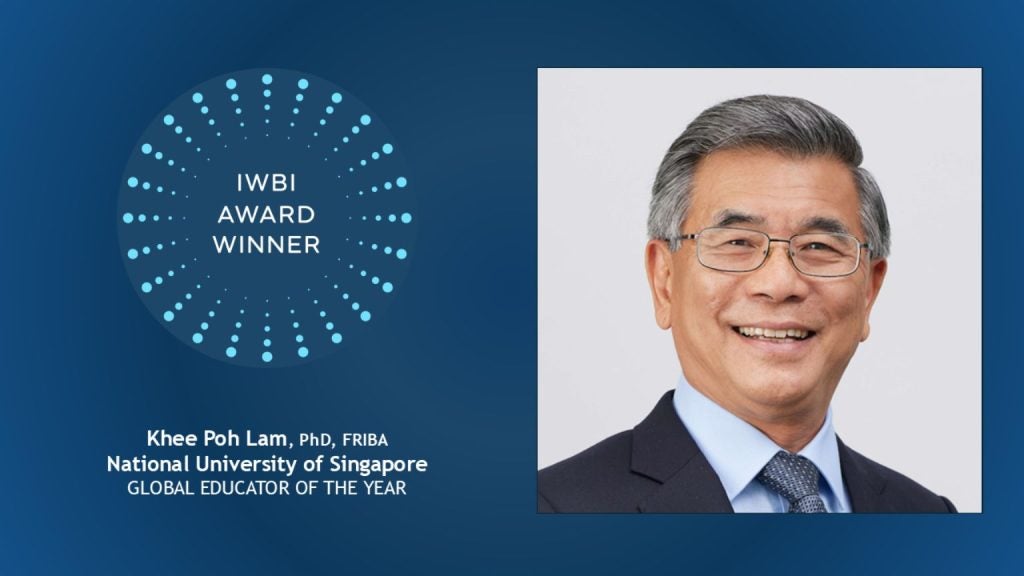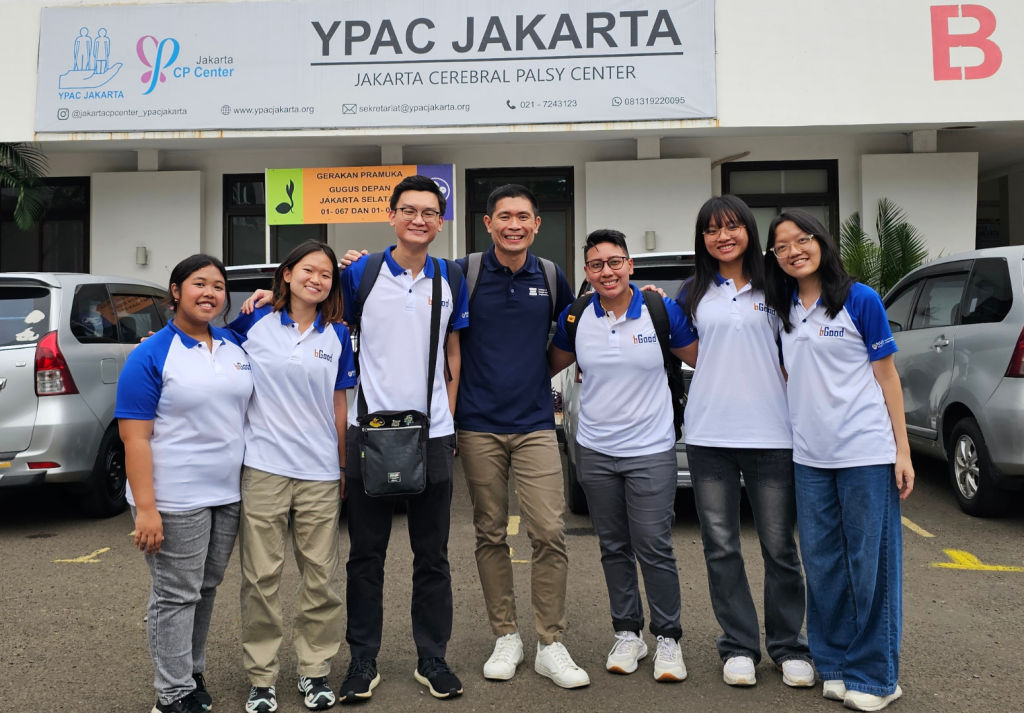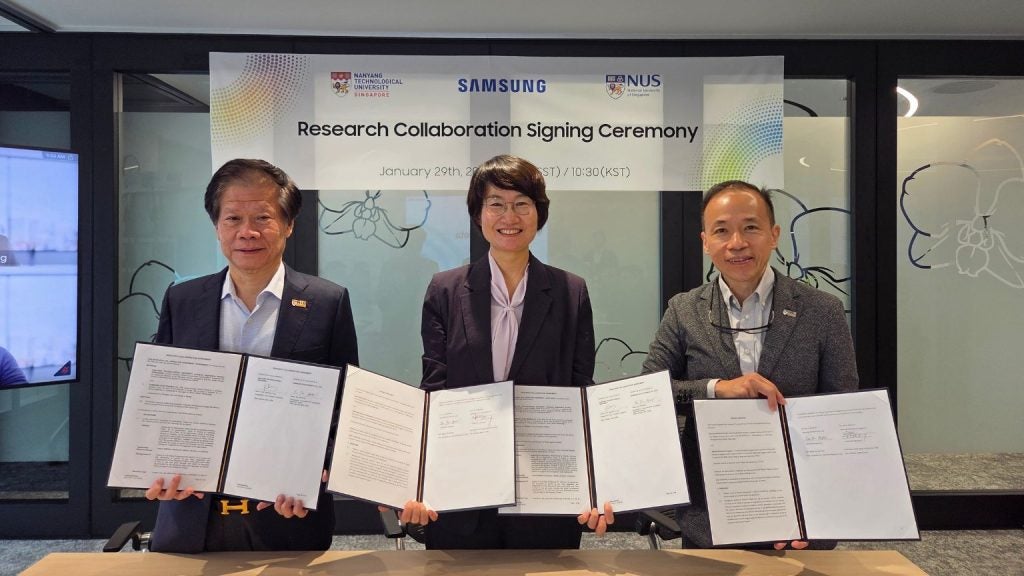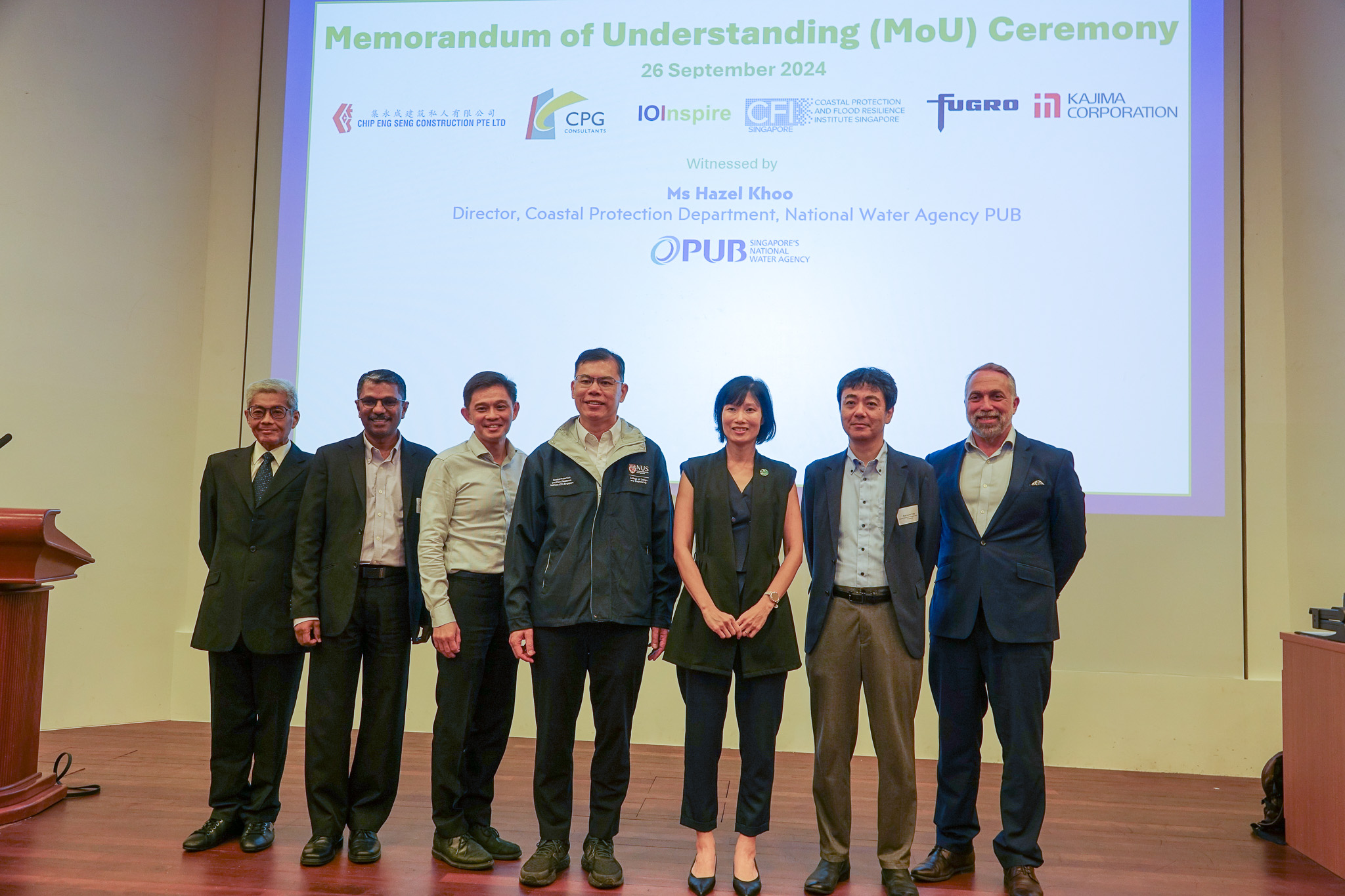
Commemorating its first year since its launch, the Coastal Protection and Flood Resilience Institute (CFI) Singapore held its inaugural symposium on 26 September under the theme “Shaping Coastal and Flood Resilience through Progress and Partnerships.” CFI Singapore is Singapore’s first Centre of Excellence dedicated to strengthening our expertise and capabilities in coastal protection and flood management research and solution development. Among those at the symposium were academia, government agencies, companies from the private sector, and industry partners.
In his opening speech, Professor Adrian Law, Executive Director of CFI Singapore, highlighted the potentially transformative impacts of collaborations with industry partners in enhancing coastal protection and flood resilience research and solutions.
“The growing impacts of extreme weather, rising sea levels and higher rainfall intensities are global, and not confined to Singapore only,” Prof Law said. “These challenges will be more severe going forward... We will need to collaborate and innovate together to develop multi-functional and cost-effective solutions that are also more adaptive and sustainable.”
Building on the momentum at Singapore International Water Week in June, CFI Singapore was looking to expand the scope of collaboration with other industry partners. The Symposium saw the launch of partnerships with five companies through Memoranda of Understanding (MOU) on joint research and development opportunities for coastal protection and flood management solutions. The five companies are Chip Eng Seng Corporation Ltd, CPG Corporation, Fugro, Kajima Corporation and Integral Omni Inspire Pte Ltd.
The partnerships will focus on:
- Coastal science research;
- Monitoring, prediction and digitalisation of the coastal environment;
- Integrated and adaptive planning;
- Innovative engineering solutions for coastal protection and flood management;
- Integrated nature-based solutions for coastal protection;
- Sustainable infrastructure solutions for coastal protection and flood management; and
- Smart management solutions for operation and maintenance for coastal protection and flood management.
Noting the significance of these partnerships, Prof Adrian Law, Executive Director and Director (Strategy, Partnerships and Technology Translation), said, “With coastal protection being a critical sector to combat climate change and sea level rise, it is imperative that we explore ways to translate research into practical applications. The partnerships established with these companies will combine academia and industry expertise to enhance cooperation and support the development of coastal protection infrastructure going forward, and together explore the incorporation of innovative engineering solutions and integrated nature-based solutions.”
Echoing Prof Law’s points, Mr Shankar N Ramsay, Chief Executive Officer at CPG Consultants Pte Ltd, said, “Working alongside CFI Singapore, national water agency PUB, and the academic community, we are committed to enhancing Singapore’s resilience against climate challenges.” This comes as Singapore continues to look for innovative solutions to support its coastal protection and flood management efforts amidst rising sea levels.
One way to sustain these efforts will be to develop a strong pipeline of talent, which is one of CFI Singapore’s key focus areas. The Institute is on the lookout to recruit and develop new talent, having expanded its research team to around 80 principal investigators, researchers and PhD students working across 17 projects.
One such talent is Ryan Lee Jun Yuan, a Research Engineer and PhD student at CFI Singapore. He said the “unique opportunities to collaborate and exchange ideas with individuals from various disciplines – marine biologists, civil engineers, and hydrologists” drew him towards CFI Singapore. The knowledge sharing that occurs across disciplines would help push him to “consider the broader implications of my (his) solutions beyond civil engineering and my (his) specialisation of geotechnical engineering to create holistic, cross-disciplinary solutions,” he added.
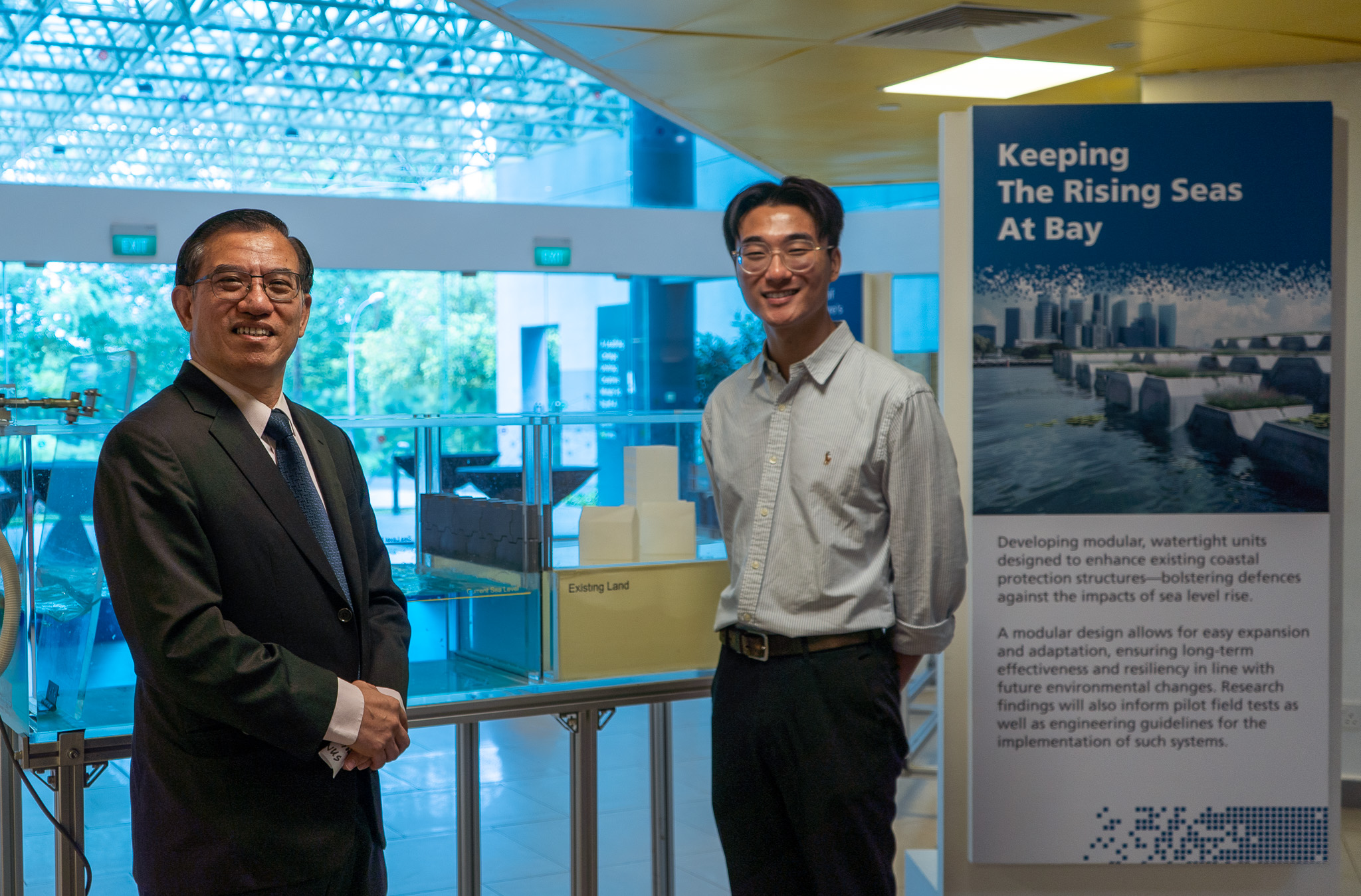
Ryan is currently working with Assistant Professor Chew Soon Hoe (Civil and Environmental Engineering) as part of his research. Asst Prof Chew’s project focuses on creating modular units with impervious, interlocking features to reduce seawater seepage at our coastlines. His team has worked with Surbana Jurong (Coastal Department) to conduct a coastal survey of existing engineering structures around Singapore, which found that vertical seawalls and rock revetments were built around most of our coastline. Asst Prof Chew’s findings will help inform future planning initiatives for the management of our coastline.



